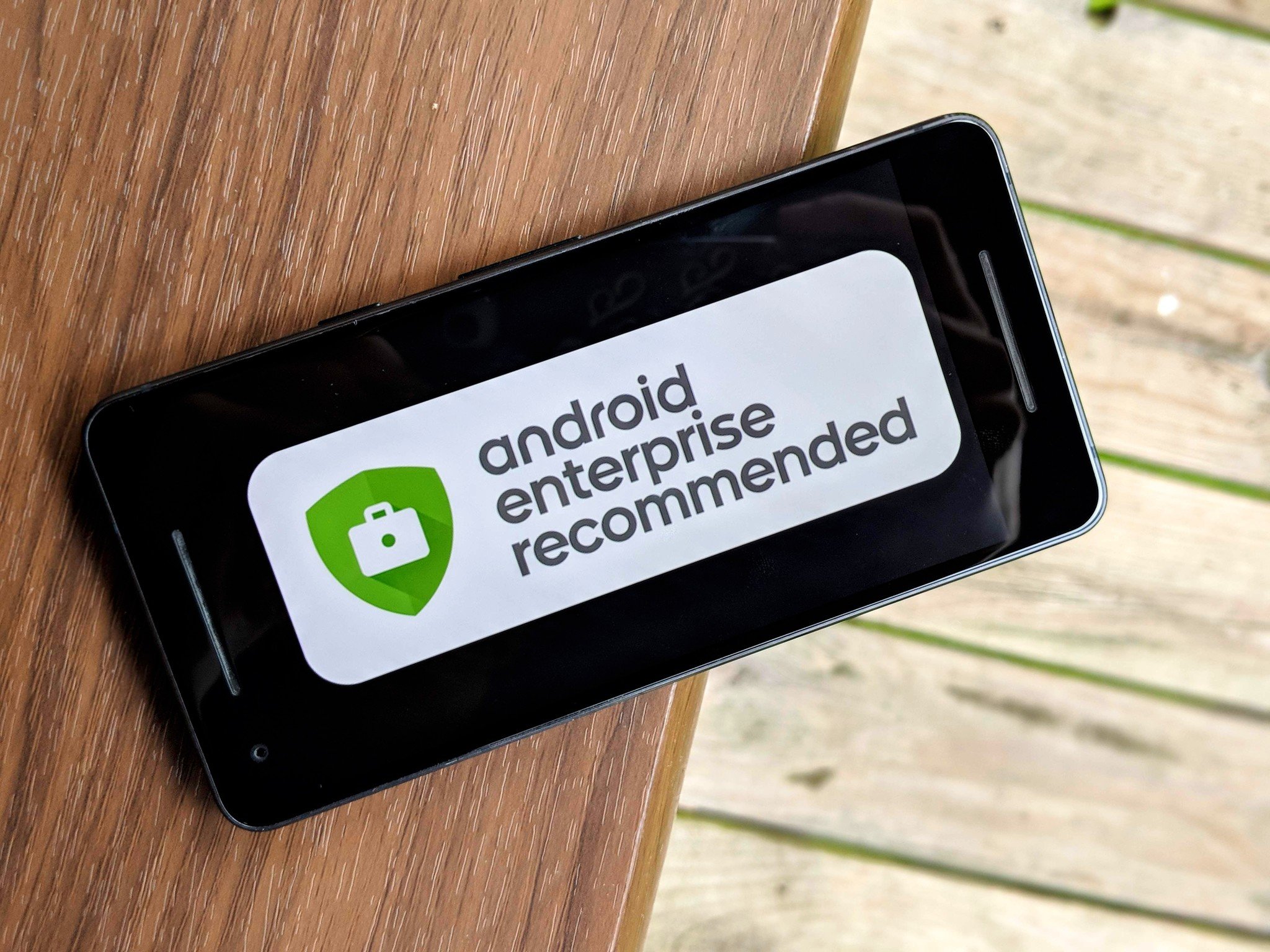
Android’s open source nature means that just about any OEM can use the operating system to power its hardware, and while this is great for a large amount of consumer choice, it also results in the market feeling a bit flooded and overwhelming at times.
If you’re buying a phone for work/business purposes, you want to make sure you get something that’s going to stay up-to-date with the latest software, have the most recent security patches, and isn’t tied down by a heap of carrier bloatware.
To aid you in your quest for finding these phones, Google created Android Enterprise Recommended. Here’s everything you need to know about it!
Contents
What is Android Enterprise Recommended?
Android Enterprise Recommended was first announced on February 21, 2018, and as the name of the program suggests, it was created with enterprise buyers in mind — not the average, everyday consumer
Buying smartphones for your business/organization is a critical task to ensure that everyone can stay connected with safe, up-to-date hardware, and unless you regularly keep your finger on the pulse of all things Android, knowing which phones/OEMs are generally good about following these guidelines is no easy task.
Android Enterprise Recommended was created with the main goal of curating the best Android phones from manufacturers that are committed to keeping them secure and easy to deploy to a large workforce.
To hear an explanation about the program from the horse’s mouth, check out the short video above.
Google has a list of strict requirements each phone must follow
Not any phone can get into Android Enterprise Recommended, and that’s a good thing. Before a device can enter the program, it needs to check off a list of requirements created by Google so businesses are 100% sure that it’ll work exactly the way they need it to.
Those requirements are as follows:
- Minimum hardware specifications for Android 7.0+ devices.
- Support for bulk deployment of Android devices including zero-touch enrollment.
- Delivery of Android security updates within 90 days of release from Google, for a minimum of three years.
- Availability of unlocked devices, direct from manufacturer or reseller.
- Consistent application experience in managed profiles and on managed devices.
For more specifics on the requirements, such as the minimum specifications for 7.0+ devices, check the link below.
Android Enterprise Recommended requirements
Speaking of phones, which ones are included?

Once a phone meets all of the above criteria, it’s officially added to the list of Android Enterprise Recommended products. Google initially launched the program with just 22 devices, but it’s steadily growing all the time as new hardware is released.
As it stands right now, here are the 39 phones/tablets supported by Android Enterprise Recommended.
- BlackBerry KEYone
- BlackBerry KEY2
- BlackBerry Motion
- Google Pixel
- Google Pixel XL
- Google Pixel 2
- Google Pixel 2 XL
- Huawei Mate 10
- Huawei Mate 10 Pro
- Huawei MediaPad M5 8.4
- Huawei MediaPad M5 10.8
- Huawei P Smart
- Huawei P10
- Huawei P10 Plus
- Huawei P10 Lite
- Huawei P20
- Huawei P20 Pro
- LG G6
- LG V30
- Moto X4
- Moto Z2 Force Edition
- Moto Z3 Play
- Moto G6
- Moto G6 Plus
- Nokia 3.1
- Nokia 5.1
- Nokia 6.1
- Nokia 7 Plus
- Nokia 8
- Nokia 8 Sirocco
- Sharp Aquos SH 10-K
- Sonim XP8
- Sony Xperia XA2
- Sony Xperia XA2 Ultra
- Sony Xperia XZ Premium
- Sony Xperia XZ1
- Sony Xperia XZ1 Compact
- Sony Xperia XZ2
- Sony Xperia XZ2 Compact
source:_androidcentral.


